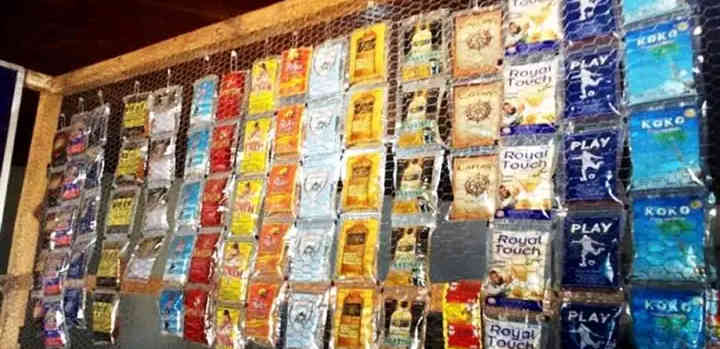The Director General of the National Agency for Food and Drug Administration and Control, Moji Adeyeye said the ban on the sale and consumption of sachet alcoholic beverages in the country is still in force.
Adeyeye said this on Wednesday at a press briefing held in Lagos and monitored by our correspondent via Zoom.
She said, “The ban on sachet alcohol is a ministerial directive and the ban still remains until the ministers respond. The meeting last week Thursday is a continuation of the discussion.”
“The outcome of the meeting is that the ministers should write a memo to the Speaker (of Reps) and the House (of Reps), and the Representative of the Speaker, Prof Jake Dan-Azumi then said we should continue the discussion after the recess of the House members in July. So, the discussion continues.”
The deputy spokesman for the House of Representatives, Philip Agbese, last Friday disclosed the House and NAFDAC resolved to lift the ban on the sale and consumption of sachet alcoholic beverages in the country.
Agbese said the resolution to lift the ban temporarily was arrived at after a meeting between the House Committee and NAFDAC officials, noted
He said the lifting of the ban would end when the economy fully recovers from its current strain.
On February 1, 2024, NAFDAC commenced the enforcement of the ban on the importation, manufacture, distribution, sale and use of alcoholic beverages in sachets, PET, and glass bottles of 200ml and below.
The NAFDAC DG said the decision was based on the recommendation of a high-powered committee of the Federal Ministry of Health, NAFDAC, Federal Competition and Consumer Protection Commission, and the industry represented by the Association of Food, Beverages and Tobacco Employers, Distillers and Blenders Association of Nigeria, in December 2018.
However, the move to enforce the ban has generated repeated protests by distillers and labour unions, who said the ban would cost 500,000 workers their jobs, and ruin N800bn investments.
Meanwhile, medical experts warned that lifting the ban on alcoholic beverages will lead to acute health complications, increased road traffic accidents, increased risk of abuse of alcohol, liver problems, heart-related problems, and cancers, among others.




